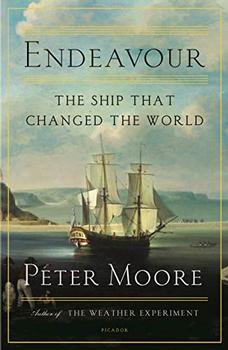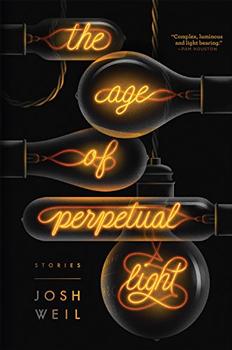Summary | Excerpt | Reviews | Beyond the book | Read-Alikes | Genres & Themes | Author Bio

How the Romantic Generation Discovered the Beauty and Terror of Science
by Richard HolmesA riveting history of the men and women whose discoveries and inventions at the end of the eighteenth century gave birth to the Romantic Age of Science.
When young Joseph Banks stepped onto a Tahitian beach in 1769, he hoped to discover Paradise. Inspired by the scientific ferment sweeping through Britain, the botanist had sailed with Captain Cook on his first Endeavour voyage in search of new worlds. Other voyages of discovery—astronomical, chemical, poetical, philosophical—swiftly follow in Richard Holmes’s original evocation of what truly emerges as an Age of Wonder.
Brilliantly conceived as a relay of scientific stories, The Age of Wonder investigates the earliest ideas of deep time and space, and the explorers of “dynamic science,” of an infinite, mysterious Nature waiting to be discovered. Three lives dominate the book: William Herschel and his sister Caroline, whose dedication to the study of the stars forever changed the public conception of the solar system, the Milky Way, and the meaning of the universe; and Humphry Davy, who, with only a grammar school education stunned the scientific community with his near-suicidal gas experiments that led to the invention of the miners’ lamp and established British chemistry as the leading professional science in Europe. This age of exploration extended to great writers and poets as well as scientists, all creators relishing in moments of high exhilaration, boundary-pushing and discovery.
Holmes’s extraordinary evocation of this age of wonder shows how great ideas and experiments—both successes and failures—were born of singular and often lonely dedication, and how religious faith and scientific truth collide. He has written a book breathtaking in its originality, its storytelling energy, and its intellectual significance.
The Age of Wonder is stirring reading for anyone interested in the lives of extraordinary, world-altering people. Learning how and when great poets and great scientists met one another, read each other’s work, or absorbed each other’s speculations and discoveries makes reading The Age of Wonder an especially ecstatic adventure. From every angle, this is a wonderful book...continued
Full Review
 (734 words)
(734 words)
(Reviewed by Jo Perry).
Richard Holmes
Biographer, poet, editor and historian Richard Holmes was born in London and attended Cambridge. He’s the author of:
 "Of course I think biography aspires to be an art, just as the novel does. It is a piece of imaginative storytelling, as well as an historical investigation. It celebrates the wonderful diversity of human nature, and its aim is enlightenment. But biography is also a vocation, a calling...
"Of course I think biography aspires to be an art, just as the novel does. It is a piece of imaginative storytelling, as well as an historical investigation. It celebrates the wonderful diversity of human nature, and its aim is enlightenment. But biography is also a vocation, a calling...

If you liked The Age of Wonder, try these:

by Peter Moore
Published 2020
An unprecedented history of the storied ship that Darwin said helped add a hemisphere to the civilized world.

by Josh Weil
Published 2018
A dazzling new work that spans a century and eight tales of light, human progress, and the search for a better life from Josh Weil, one of "the most gifted writers of his generation" (Colum McCann), winner of the Sue Kaufman Prize from the American Academy of Arts and Letters
Any activity becomes creative when the doer cares about doing it right, or better.
Click Here to find out who said this, as well as discovering other famous literary quotes!